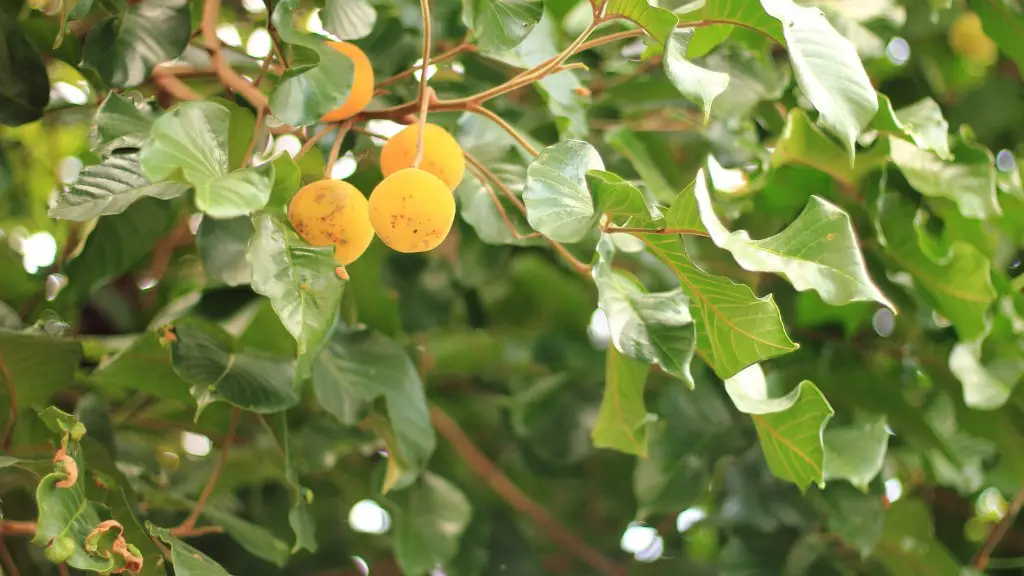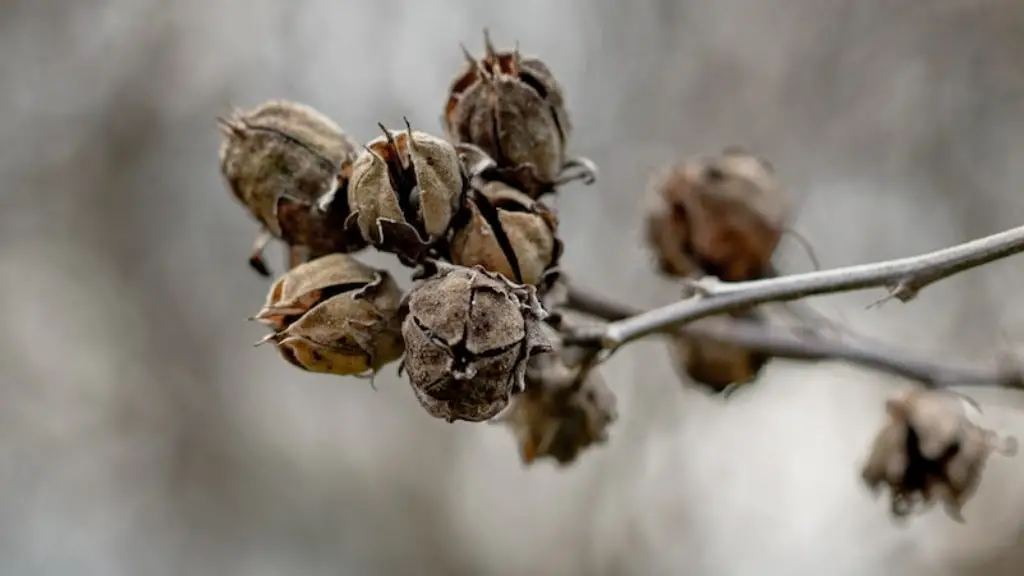Growing a lemon tree and harvesting its fruit takes patience and a bit of knowledge. The amount of time it takes for a lemon tree to produce fruit depends on several factors, such as age, climate and the type of tree. Generally, you can expect results within 4-7 years. A young tree will take 6-7 years to mature, but it could take up to 10 years for an extremely slow-growing variety.
A lemon tree needs plenty of direct sunlight, so it should be planted in a spot that gets at least six hours of sun a day. A healthy tree needs to be watered regularly and fertilized twice a year to ensure healthy fruit production. To ensure production, it is important to prune the tree each year to remove dead or diseased branches and to promote the growth of healthy, fruit-bearing branches.
The type of lemon tree also influences how long it takes to bear fruit. Dwarf varieties, such as Meyer lemons, tend to produce fruit more quickly than standard-size trees. Additionally, cold-hardy varieties, such as evergreen and sweet lemons, can tolerate colder temperatures, allowing them to bear fruit sooner than others.
It’s also important to take into account how many lemons the tree can bear each year. Commercial orchards and backyard gardens typically yield 40 to 60 lemons per tree each year. Dwarf varieties bear fewer and smaller fruits, while larger varieties, such as Eureka and Lisbon lemons, can produce up to 100 fruits per season.
The lemon tree is considered a slow-growing plant, but with the right care, it can produce fruits in four to seven years. To ensure that the tree is healthy and produces plenty of fruits, it’s important to give it plenty of sunshine and water, as well as routine pruning and fertilizer. The type of lemon tree also plays a role in how quickly the tree can produce fruit.
Fertilization and Pruning
Lemon trees should be fertilized twice a year to promote good growth and yield. Fertilizer should be applied in the spring and early summer. Care should be taken not to over-fertilize, as this can lead to unhealthy growth and reduced production. Pruning is also important for lemon trees. Pruning couples, weak or diseased branches improves the tree’s overall structure, promotes healthy growth and encourages the production of fresh fruit.
Climate and Soil Type
The climate and type of soil in which the lemon tree is planted will also influence the growth rate and yield of fruit. In temperate climates, the tree will generally produce fruit in 3-5 years. In subtropical and tropical climates, the trees will produce fruit faster, but this also depends on the type of soil and drainage available. Well-drained soil is essential for a healthy lemon tree, and regular soil enrichment with compost can improve the tree’s overall health and increase its production speed.
Planting and Care for Lemon Trees
When planting a lemon tree, it is important to choose a spot that gets plenty of sunlight, preferably 6-8 hours per day. The tree should also be planted in well-drained, compost-rich soil. Once planted, the tree should be watered regularly and must be pruned and fertilized regularly for it to bear fruit. Additionally, regular pest control is necessary to ensure healthy growth and fruit production.
Basic Needs for Lemon Trees
The basic needs for lemon trees are similar to those of other fruit-bearing trees. The tree should be planted in a spot that gets plenty of sunlight, and it must be watered regularly. Fertilization is also important for healthy growth and a good yield of fruit. Additionally, pruning should be done regularly to keep the tree healthy, promote healthy growth and encourage vibrant fruit production.
Healthy Habits for Lemon Trees
Developing healthy habits when caring for lemon trees is essential for good fruit production. This includes planting the tree in a spot that gets adequate sunlight, providing it with regular water and fertilizer, pruning on a regular basis and applying pest control products as necessary. Additionally, it is important to ensure the soil is well-drained and that compost is added to promote healthy growth and yield.


